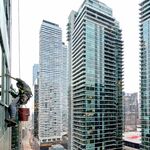Netherlands: Government presents new asylum and migration rules
The government of the Netherlands presented its porposed new asylum and migration programme on 13 September, following an earlier May 2024 coalition agreement. A number of measures contained within the programme would affect th eintegration of third-country nationals (TCNs) residing in the Netherlands, as outlined below.
Stricter naturalisation rules
The government is tightening the requirements for obtaining Dutch citizenship. The language requirement is being raised to level B1, and the waiting period for naturalisation is extended from 5 to 10 years. Additionally, the government aims for new citizens to renounce their original nationality, where possible, unless specific exceptions apply.
Selective and targeted labour migration policy
The government seeks to reduce labour migration and introduces strict measures to limit low-wage employment and combat poor working conditions. Residents of the Netherlands, including family migrants, refugees, and asylum seekers likely to obtain permits, will be encouraged to participate in the Dutch labour market.
Greater control over international student migration and limits on the 'Anglicisation' of higher education
The government aims to better regulate the large number of international students and restrict the so-called 'Anglicisation; of Dutch higher education. Universities and colleges are tasked with coordinating the intake of international students, strengthening the role of the Dutch language, and expanding the use of fixed intake numbers.
Self-reliance and participation of Ukrainian refugees
The government continues to focus on the self-reliance and integration of beneficiaries of temporary protection from Ukraine. Since summer 2024, it has initiated the phase-out of living allowances for people displaced from Ukraine with sufficient income from employment. They are also expected to contribute to the costs of their accommodation when possible.
Restrictions on asylum
Additionally, the restrictions on asylum are significant. The government declared an ‘asylum crisis’, allowing for temporary measures to manage the influx of asylum seekers without the immediate approval of both parliamentary chambers. Approval is expected at a later stage.
In terms of its impact on integration, recognised refugees may only bring family members to the country if they have held their residence status for at least 2 years, have adequate housing, and a 'stable and sufficient income'. There will also be a limitation on family reunification for adult children.
Additionally, repeated asylum applications will be more rigorously scrutinised for new facts and circumstances. The introduction of the asylum crisis law also modifies existing regulations: the Dispersal Act will be withdrawn, there will be a suspension on new asylum applications, reception facilities will be downgraded, and individuals without the right to stay may be forcibly removed.
Furthermore, the rule that asylum seekers automatically receive a permanent residence permit after 5 years is abolished. Asylum seekers who have been in the Netherlands for 5 years or more may still be required to return to their country of origin when it is deemed safe.
The measures outlined here currently constitute a proposal, which represents the government’s intentions. The proposed programme is subject to change based on future policy decisions and implementation processes.









